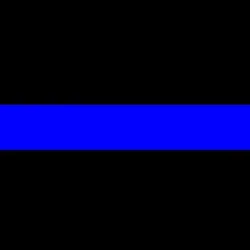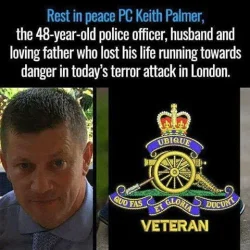7 people arrested from 6 addresses in various places in the UK, Four people have died and 40 people have been injured.
So far, only the police officer who died has been named. He was PC Keith Palmer, 48, of the Parliamentary and Diplomatic Protection Command. He had 15 years' service and was a husband and a father.
One woman in her mid-40s was killed after being hit by the attacker's car before it reached Parliament. She was confirmed dead by a doctor at St Thomas' Hospital.
Police said a man in his mid-50s had also died and seven people were still in a critical condition. A further 29 have been treated in hospital.
The injured included three police officers who were walking across the bridge on their way back from a commendation ceremony. Two are described as being in a serious condition.
A woman was given urgent medical treatment after falling into the River Thames as the attacker's car drove onto the pavement.
Police said a "range of nationalities" were among the injured.
A group of French schoolchildren were on the bridge and three were injured in the incident.
Four university students from Edge Hill University, in Lancashire, were also hurt. Two were sent to hospital as "walking wounded", whilst two others had minor injuries.
Five South Korean tourists were injured - one of them seriously - in a stampede as people fled the area after the attack.
London Ambulance Service said it had treated 12 people with serious injuries, who were all taken to hospital. They also treated eight people with less serious injuries at the scene.
Kings College Hospital says eight patients were being treated there - six male, and two female. Two were described as critical and two stable
St Thomas' Hospital said two patients had been admitted - both were stable.
One patient was admitted to the Royal London Hospital, but no details were given.
The prime minister said there was a "single attacker".
He has not yet been named. Police say they think they know who he is, and are "working to look at associates". Acting deputy commissioner Mark Rowley, the Met's top anti-terror officer, urged restraint from "proactive investigative journalists" in working out who he was.
Mr Rowley said the working assumption was that the attacker was "inspired by international terrorism" and "Islamist-related terrorism", but would not comment on his nationality or any other details.
He said police were focusing on the suspect's "motivation, preparation and associates".



